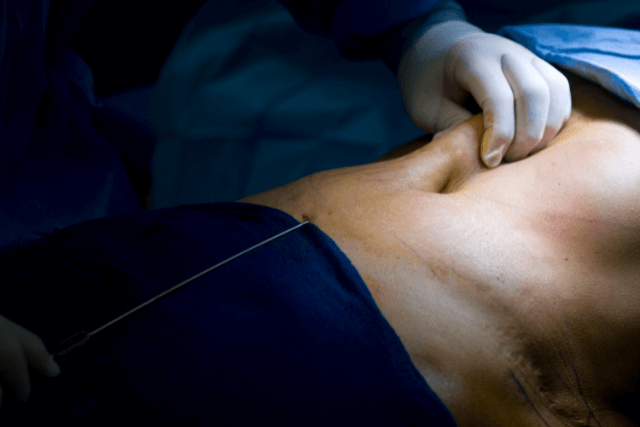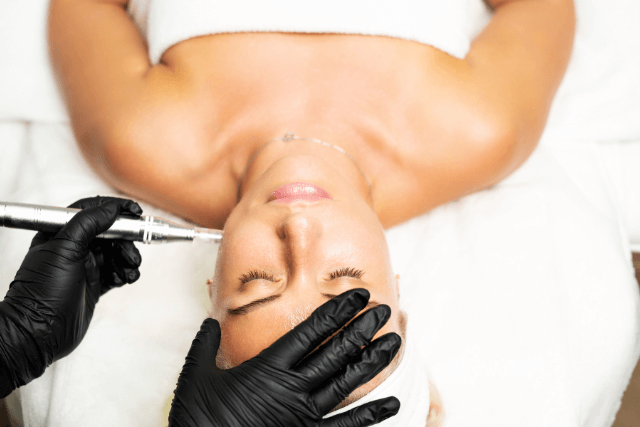Many patients choose a Brazilian Butt Lift (BBL) to enhance their curves and boost confidence. While the procedure can offer impressive results, one common concern that often goes unspoken is the issue of odor during recovery. If you have noticed an unpleasant smell after your surgery, you are not alone. In fact, understanding BBL smell is an important part of managing your post-operative experience and ensuring proper healing.
In this guide, we will take a close look at why it happens, what it means, and how you can safely address it. Whether you are preparing for a BBL or recovering from one, this guide will help you understand what is normal and when to seek medical advice.
What Is a BBL and Why Smell Can Occur
A Brazilian Butt Lift is a cosmetic procedure that involves liposuction to remove fat from one part of the body and transfer it to the buttocks. The goal is to achieve a fuller, rounder shape without using implants.
While the benefits can be life-changing, patients often report a strong or unusual smell during the recovery period. Understanding BBL smell starts with knowing how the procedure affects the body. Because the surgery involves fat transfer, tissue disruption, and healing incisions, it creates an environment that may lead to odor.
Let us now explore the most common causes.
Common Causes of BBL Smell
Hygiene After Surgery
Maintaining proper hygiene is one of the most important parts of healing. However, it is also one of the most challenging aspects after a BBL. Since you cannot sit or lie directly on your buttocks during the early stages of recovery, showering and cleaning the area can be tricky. As a result, sweat, bacteria, and fluids may build up.
Over time, this buildup can produce an unpleasant smell. Understanding BBL smell related to hygiene requires close attention to how you clean the area and how often you change surgical garments or dressings.
Fluid Drainage
During the first week of recovery, your body naturally releases fluid from the surgical sites. These fluids may include blood, plasma, and fat residues. This drainage is normal, but it can have a strong odor.
If fluid collects under dressings or clothing, the smell may become more noticeable. Keeping the area dry and changing any absorbent pads or compression garments regularly can help reduce this risk.
Infection Concerns
Another possible cause of BBL smell is infection. This is less common but much more serious. If you notice a strong, foul odor along with redness, swelling, heat, or pus, contact your surgeon right away. Infections can delay healing or lead to serious health issues if not treated promptly.
Understanding BBL smell in the context of infection requires awareness of additional symptoms. If the smell worsens or is accompanied by fever or chills, seek medical help immediately.
Compression Garments
You will be required to wear a compression garment after surgery to support healing and reduce swelling. However, if this garment is not washed regularly or becomes damp from sweat, it can develop a noticeable odor.
The combination of warmth, moisture, and tight contact with the skin makes compression garments a common contributor to post-BBL smell. Make sure to have more than one so you can rotate them during laundry cycles.
Identifying Normal vs. Concerning Smell
Normal Smell During Healing
It is important to understand that some smell is normal in the first few days after a BBL. The body is working hard to repair tissues, reabsorb fluids, and manage inflammation. Mild odor that goes away with hygiene and routine care is typically not a cause for concern.
Signs of a Problem
However, if the smell becomes stronger over time or is paired with pain, discharge, or swelling, this may indicate a problem. Always trust your instincts. If something feels off, speak to your doctor.
Keep in mind that understanding BBL smell includes learning how it changes from day to day. A sudden shift in odor often signals a need for further evaluation.
Post-Surgical Hygiene Tips
Clean Gently and Often
Even though it may be difficult, cleaning your body daily is essential. Use a gentle, fragrance-free soap and warm water to wash the area around your surgical sites. Avoid scrubbing directly on incisions.
Try using a handheld shower or sponge to make cleaning easier while avoiding pressure on your buttocks.
Rotate Garments
Wear clean, dry compression garments at all times. Wash them with mild detergent and allow them to dry fully before rewearing. If possible, alternate between two or more garments during the recovery period.
Use Antibacterial Wipes
When you cannot shower, use alcohol-free antibacterial wipes to gently clean around the surgical area. Be sure the wipes do not contain harsh chemicals or perfumes.
When to Contact Your Surgeon
Although many causes of odor are minor, it is still important to know when to call your provider. Contact your doctor if you notice:
- A strong, foul smell that worsens
- Discharge with a green or yellow color
- Swelling that increases instead of goes down
- Fever, chills, or fatigue
- Pain that does not improve with medication
Understanding BBL smell also means knowing when medical care is necessary. Early treatment can prevent complications and improve your healing timeline.
Safe Solutions for Managing BBL Smell
Keep the Area Dry
Moisture encourages bacteria. After cleaning, always dry the area completely before putting on clothing or garments. Use a clean towel and pat gently rather than rubbing.
Apply Healing Ointments
Ask your surgeon about safe topical creams that support healing and reduce bacterial growth. Some over-the-counter products may not be suitable, so always get a recommendation before using them.
Adjust Your Diet
Believe it or not, what you eat can impact how your body smells. Foods that contain garlic, onions, or high-fat content can affect body odor during healing. Eat clean, whole foods that promote healing and reduce inflammation.
Support During BBL Recovery
Healing from a BBL can be both exciting and stressful. Finding ways to stay supported helps reduce anxiety about changes in your body. Talk to your care team about any concerns, and do not hesitate to ask questions.
Also, consider joining a recovery group or online forum to share experiences and gain insights. Many people find relief in knowing they are not the only ones dealing with post-surgery odor.
Preventing Future Smell
Stick to Post-Op Guidelines
Your surgeon gives you aftercare instructions for a reason. Following these directions helps prevent complications, including odor. Do not skip hygiene routines, garment changes, or follow-up visits.
Avoid Over-the-Counter Deodorants
Never apply regular deodorants, powders, or perfumes to your surgical area. These products can cause irritation and introduce bacteria into healing wounds.
Stay Hydrated
Drinking water helps your body flush out toxins and stay clean from the inside out. Hydration also supports your skin as it repairs and adapts after surgery.
Emotional Impact of Post-Surgical Odor
While physical recovery is important, the emotional side of healing matters too. Many patients feel embarrassed or anxious about smell after surgery. Understanding BBL smell helps remove the stigma and makes it easier to talk about openly.
Talk to your care team about any emotional discomfort you may feel. You can also speak with a counselor or join a support group for people undergoing cosmetic surgery.
Recovery Timeline and Smell Patterns
First Week
Some odor is normal due to fluid drainage and healing incisions. Focus on hygiene and change your garments daily.
Weeks Two to Four
Most swelling goes down. Odor should improve significantly. If it does not, check with your doctor.
After One Month
You should not notice any smell unless infection is present. Keep monitoring for signs and continue gentle care.
Summary of Best Practices
Let us recap the most important steps to managing and preventing BBL-related smell:
- Practice daily hygiene even if it is challenging
- Keep compression garments clean and dry
- Monitor for signs of infection
- Stay hydrated and eat clean foods
- Contact your surgeon with any changes or concerns
- Avoid using scented or harsh products on healing skin
Final Thoughts:Understanding BBL Smell
Understanding BBL smell is a key part of ensuring a smooth recovery. While some odor is completely normal, knowing what to expect and how to respond makes the experience less stressful. With proper hygiene, close monitoring, and clear communication with your care team, you can stay safe, feel confident, and enjoy your results.
If you are considering a BBL or are currently in recovery, keep these tips in mind. They will help you heal more comfortably and avoid unnecessary issues.





